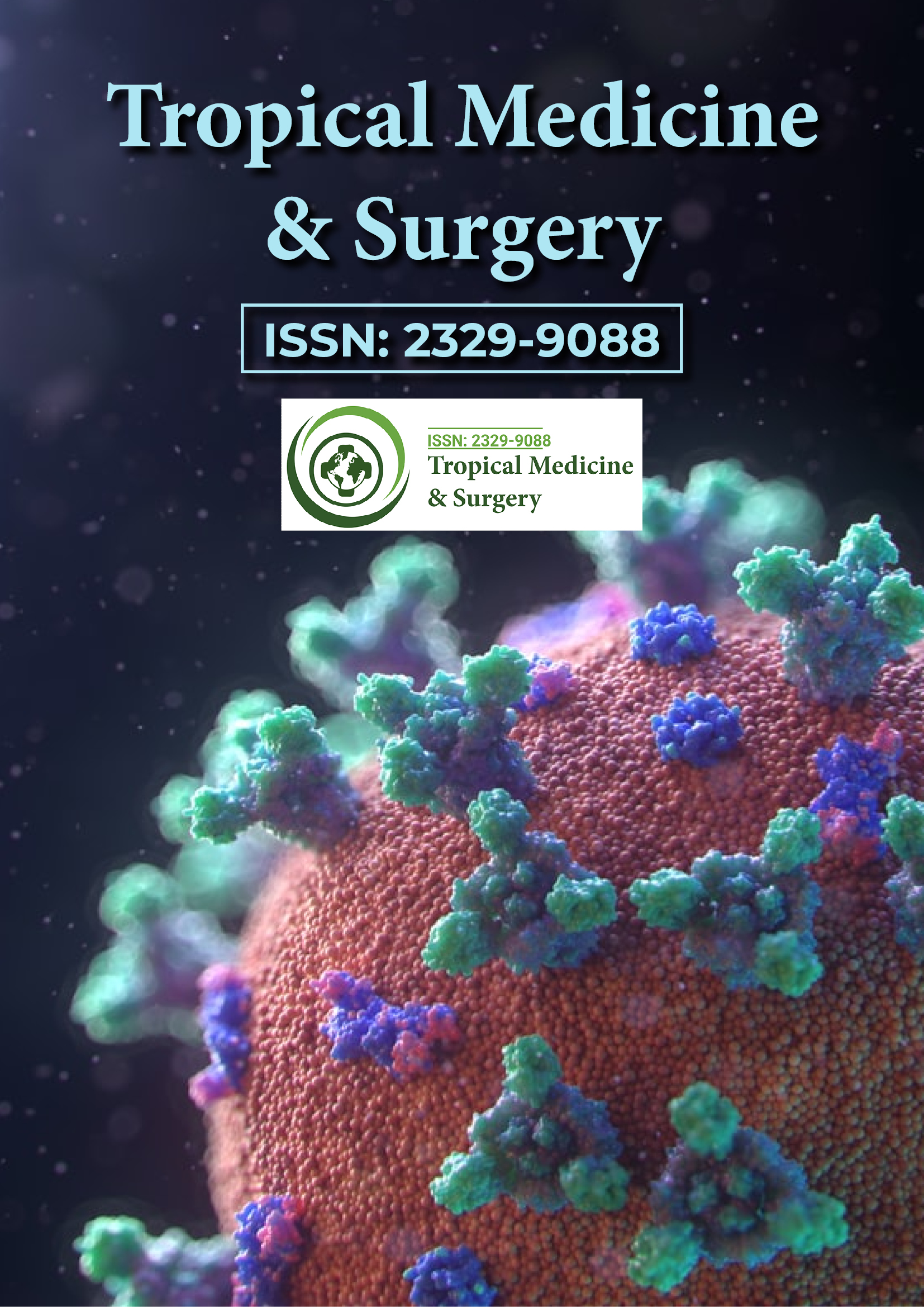Indexed In
- Open J Gate
- Academic Keys
- RefSeek
- Hamdard University
- EBSCO A-Z
- OCLC- WorldCat
- Publons
- Euro Pub
- Google Scholar
Useful Links
Share This Page
Journal Flyer

Open Access Journals
- Agri and Aquaculture
- Biochemistry
- Bioinformatics & Systems Biology
- Business & Management
- Chemistry
- Clinical Sciences
- Engineering
- Food & Nutrition
- General Science
- Genetics & Molecular Biology
- Immunology & Microbiology
- Medical Sciences
- Neuroscience & Psychology
- Nursing & Health Care
- Pharmaceutical Sciences
Opinion Article - (2023) Volume 11, Issue 4
Novel Therapeutic Targets in Leishmaniasis Treatment and Potential Roles of Non-Coding Rnas
Rhuane Matos*Received: 03-Jul-2023, Manuscript No. TPMS-23-22488; Editor assigned: 07-Jul-2023, Pre QC No. TPMS-23-22488 (PQ); Reviewed: 21-Jul-2023, QC No. TPMS-23-22488; Revised: 28-Jul-2023, Manuscript No. TPMS-23-22488 (R); Published: 04-Aug-2023, DOI: 10.35248/2329-9088.23.11.320
Description
Leishmaniasis a abandoned tropical disease caused by protozoan parasites of the Leishmania genus, poses a significant public health challenge in various parts of the world. With millions of individuals affected, particularly in regions with limited access to healthcare and sanitation, leishmaniasis demands effective treatment strategies. The study of Long Non-Coding Ribo Nucleic acids (LncRNAs) and their potential roles in response to leishmaniasis treatment. This article delves into the innovative to RNA sequencing analysis to investigate the expression of specifically generated LncRNAs in individuals undergoing leishmaniasis treatment, comparing their profiles to those of uninfected persons.
RNA-Seq, or RNA sequencing, is a powerful technique used for analyzing the transcriptome of a given sample. RNA-Seq involves sequencing the RNA molecules present in a sample and then comparing the sequencing results to transcriptomics data from other samples. This technique enables to identify differentially expressed genes and transcripts, including lncRNAs. Long noncoding RNAs are a class of RNA molecules that do not encode proteins but are involved in various cellular processes, including gene expression regulation, chromatin modification, and epigenetic control. In recent years, the significance of LncRNAs in diseases, including infections, has come to light. Their ability to influence immune responses, cell differentiation, and inflammatory pathways positions them as potential players in the context of leishmaniasis treatment.
RNA Sequencing (RNA-seq) has revolutionized study of gene expression. By providing a snapshot of the entire transcriptome, RNA-seq enables to identify differentially expressed genes and non-coding RNAs under different conditions. In the context of leishmaniasis treatment, RNA-seq can unravel the intricate molecular changes occurring in response to therapy, shedding light on the involvement of LncRNAs. The expression of specifically generated LncRNAs in leishmaniasis treatment. Participants included individuals with confirmed leishmaniasis undergoing treatment, as well as uninfected controls. RNA samples samples were extracted from Peripheral Blood Mononuclear Cells (PBMCs) collected at different time points during treatment. State-of-the-art sequencing techniques were employed to generate transcriptomics profiles for each sample. Initial analysis focused on identifying LncRNAs that exhibited differential expression between the treatment group and uninfected controls. Through rigorous bioinformatics pipelines, pinpointed a subset of LncRNAs that were particularly induced or suppressed in response to leishmaniasis treatment. These LncRNAs held potential clues to the underlying mechanisms.
The RNA-seq analysis, selected LncRNAs was subjected to further experimental exploration. Techniques such as qRT-PCR were employed to quantify the expression levels of these LncRNAs in larger sample cohorts. Their potential functions, whether in immune cell activation, parasite clearance, or tissue repair. This RNA sequencing analysis shed light on the intricate interplay between LncRNAs and leishmaniasis treatment. By identifying specifically generated LncRNAs and unraveling their roles in the context of therapeutic response, this study opens doors to novel therapeutic targets and strategies. Further they could delve into the functional mechanisms of these LncRNAs, potentially leading to the development of LncRNA-based therapies.
RNA sequencing technology and the study of LncRNAs has provided a fresh perspective on leishmaniasis treatment. Uncovering the expression patterns of specifically generated LncRNAs in response to therapy offers a deeper understanding of the molecular dynamics. The gap between genomics and medicine for innovative interventions and approaches in the battle against leishmaniasis ultimately improving the lives of millions affected by devastating disease. The identification of lncRNAs that are specifically expressed in leishmaniasis patients could potentially provide new insights into the molecular mechanisms of the disease and lead to the development of new diagnostic tools and therapies. However, it is important to note that RNA-Seq analysis has several limitations, including the need for large amounts of sequencing data and the limitation of the quality of the sequencing data.
Citation: Matos R (2023) Novel Therapeutic Targets in Leishmaniasis Treatment and Potential Roles of Non-Coding RNAs. Trop Med Surg.11:320.
Copyright: © 2023 Matos R. This is an open access article distributed under the terms of the Creative Commons Attribution License, which permits unrestricted use, distribution, and reproduction in any medium, provided the original author and source are credited.
